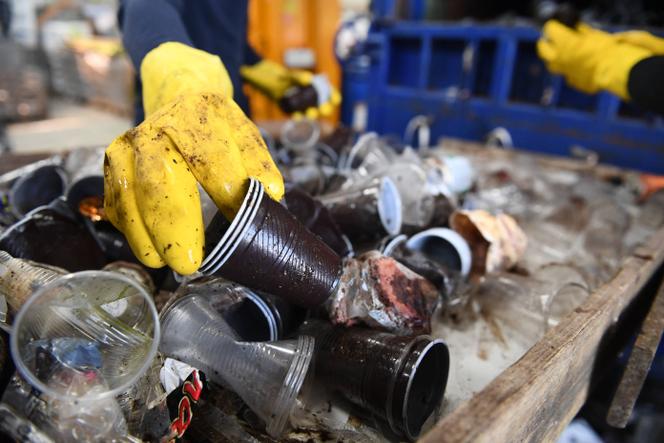


Negotiations lasted right up until the last minute. After more than a year of bitter debate and an intense lobbying campaign from fast-food giants and packaging professionals, MEPs and member states of the European Union (EU) finalized the last major text of the Green Deal on Monday, March 4: the packaging regulation. In particular, the proposed legislation intends to curtail plastic pollution caused by packaging explosions.
From single-use coffee-break cups to online shopping packages and water bottles, the amount of packaging waste generated by Europeans has never been higher. According to Eurostat data, the amount has increased by almost 32 kg in a decade, reaching 189 kg per capita in 2021. According to the current rate, the 200 kg per year mark should be reached by 2030.
In the end, the 27 member states and their MEPs managed to salvage the essentials: the targets. Specifically, to reduce waste volumes by -5% by 2030, -10% by 2035 and -15% by 2040, and to recycle 100% of packaging by 2030 and 100% of plastic by 2035 (compared to just 64% today and only 40% in 2040).
The European Parliament's rapporteur for the text, Frédérique Ries (Renew), described the agreement as "historic and unexpected." The Belgian MEP highlights the ban on single-use plastic packaging in cafes and restaurants by 2030 in particular.
In contrast to France's anti-waste law, which banned all disposable tableware in fast-food outlets from January 1, 2023, cardboard and paper packaging aren’t affected. Environmental associations and Zero Waste France warn of "a major risk of transfer" to paper and cardboard, two water-intensive materials that fall largely under the radar of the new legislation. Italy, which was leading the fight against the text on behalf of its recycling system, and the fast-food sector both gained concessions.
In February 2023, the American giant McDonald's financed a study concluding that banning single-use packaging would lead to increased plastic production, water consumption and food safety concerns. During that time, Pascal Canfin (Renew), the president of the European Parliament's Environment Committee, denounced it as a "lobbying campaign that stops at nothing."
One year later, the French MEP is hailing an initiative that will "reduce pollution from one of the main consumer sectors of virgin materials." Canfin, a close associate of Emmanuel Macron, said a whole range of "unnecessary packaging" will be eliminated from 2030: very thin plastic bags, plastic film around suitcases at airports, small shampoo bottles in hotels, small sauce pods and plastic packaging for certain fruits and vegetables (a measure that is already in effect in France, although it has numerous exceptions).
You have 43.55% of this article left to read. The rest is for subscribers only.
